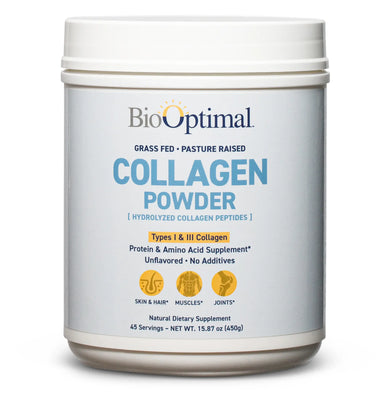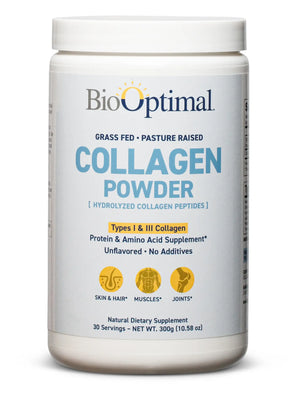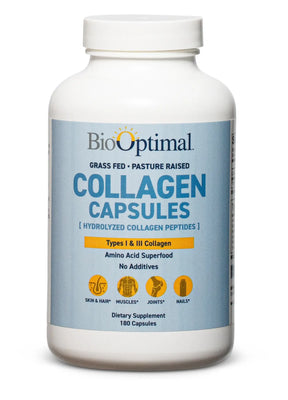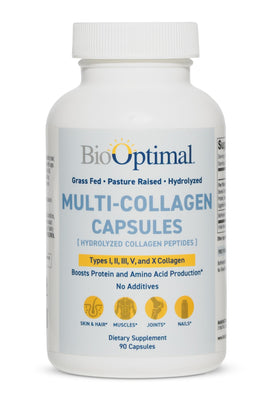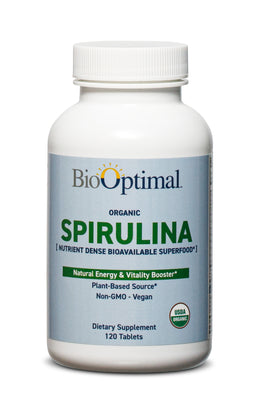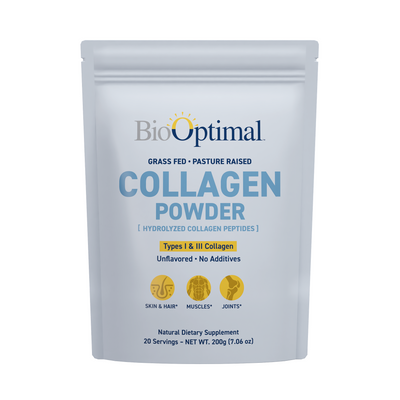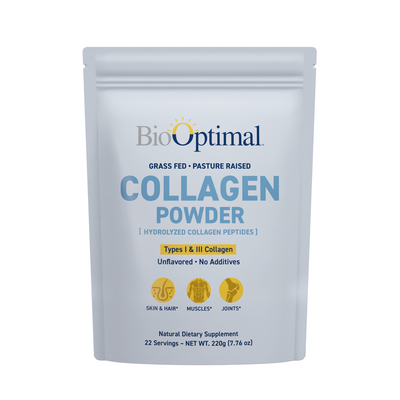Table of contents:
- Types of Collagen
- Benefits of Collagen for Women Over 50
- Symptoms of Collagen Deficiency
- Causes and Risk Factors of Collagen Loss
- Preventive Measures Against Collagen Loss
- Best Collagen Supplements for Women Over 50
- How to Choose the Right Collagen Supplement
- How to Incorporate Collagen in Daily Lifestyle?
- Potential Side Effects and Considerations
- Wrapping up
As women age, maintaining skin elasticity, joint health, and overall vitality becomes increasingly essential. Collagen occurs naturally in the body and is crucial in supporting these areas. However, collagen production declines in the 30s and accelerates after 50, leading to wrinkles, thinning skin, and joint discomfort.
Incorporating a high-quality collagen supplement into their daily routine increase skin hydration, improving joint mobility, and supporting bone health. With numerous collagen products on the market, finding the right one tailored to the needs of women in this age group can be challenging. This guide will provide knowledge about the best collagen options for women over 50, offering insights into the benefits, types of collagen, and other critical factors to consider.
Types of Collagen
Collagen supplements come in various types, each offering distinct benefits tailored to specific needs. Knowing these differences is critical to selecting the right supplement for your health goals. Below, we’ll break down the main types of collagen, including their sources and the unique advantages they offer for women over 50.

Type I Collagen
Type I collagen is the most abundant collagen in the body and is primarily found in skin, hair, nails, and bones. It's highly effective for promoting skin elasticity and reducing wrinkles, making it an excellent choice for women over 50 looking to maintain youthful, healthy skin. Additionally, Type I collagen supports bone strength and overall structural integrity.
Type II Collagen
This is predominantly found in cartilage and is essential for joint health. For women over 50 who may experience joint stiffness and discomfort, Type II collagen can be particularly beneficial. This collagen type helps cushion joints, improving flexibility and reducing pain associated with aging and wear.
Type III Collagen
Type III collagen is produced in the skin, blood vessels, and internal organs and often works alongside Type I. It is crucial for maintaining the structure of these tissues. For women over 50, Type III collagen can support cardiovascular health and improve skin firmness, complementing the effects of Type I collagen.
Marine Collagen
Marine collagen is derived from fish and primarily comprises Type I collagen. It’s known for its high bioavailability, meaning the body quickly absorbs it. For women over 50, marine collagen is an excellent option for enhancing skin hydration, reducing fine lines, and supporting overall skin health.
Bovine Collagen
Bovine collagen, sourced from cows, contains Type I and Type III collagen. This combination makes it ideal for women over 50 who want to support skin elasticity, improve joint health, and maintain strong bones. Bovine collagen is widely available and a versatile option for overall wellness.
Plant-based Collagen
Plant-based collagen, though not actual collagen, consists of collagen-boosting nutrients like amino acids, vitamins, and minerals that support the body’s natural collagen production. This option is ideal for women over 50 who prefer a vegetarian or vegan approach to improve skin, hair, and joint health without animal-derived products.
Benefits of Collagen for Women Over 50

Maintaining adequate collagen levels is critical to supporting the appearance and overall well-being of women over 50. Below are the primary benefits of collagen supplementation for this age group.
Skin Health
Collagen plays a critical role for women over 50. Supplementing with collagen can help minimize wrinkle appearances, improve skin texture, and make your complexion youthful, boosting the skin’s natural collagen matrix.
Joint Health
Joint discomfort and stiffness often become more pronounced as we age, partly due to the loss of collagen in cartilage. Supplementing with collagen, particularly Type II, can help cushion joints, reduce inflammation, and improve mobility, making it easier to stay active and pain-free.
Bone Density
Collagen is essential for bone structure, helping to keep bones strong and resilient. As bone density naturally decreases with age, collagen supplementation supports bone health, reduces the risk of fractures, and maintains overall skeletal strength.
Muscle Mass
Collagen is rich in amino acids that preserve muscle mass, which is crucial to maintaining strength and mobility. Collagen supplementation can aid muscle recovery, support lean muscle growth, and help prevent age-related muscle loss.
Hair and Nail Strength
Thinning hair and brittle nails are common concerns as we age. Supplementing collagen can help strengthen hair and nails with building blocks for keratin production, leading to healthier, shinier hair and more robust, less brittle nails.
Gut Health
Maintaining a healthy gut is vital for the overall health of women over 50. Collagen can help soothe the digestive tract, minimize inflammation, and heal the gut lining, improving digestive health.
Symptoms of Collagen Deficiency
The body often shows signs of deficiency as collagen production naturally declines with age. Here are some of the most common signs indicating a lack of collagen.
- One of the earliest and most visible signs of collagen deficiency is the appearance of wrinkles and fine lines. This leads to sagging and the development of creases.
- Collagen deficiency can lead to the deterioration of cartilage, causing joint pain, stiffness, and decreased mobility.
- Bones get weak and brittle with age, increasing chances of fractures and osteoporosis, particularly in postmenopausal women who are already at higher risk for bone density loss.
- A decline in collagen can result in muscle loss and a decreased ability to recover from physical activity.
- When collagen levels drop, hair may become thinner and more prone to breakage, while nails may become brittle, weak, and prone to splitting.
- Collagen deficiency can lead to a compromised gut barrier, resulting in digestive issues such as bloating, gas, and leaky gut syndrome.
Causes and Risk Factors of Collagen Loss
Collagen loss is influenced by various factors, both natural and lifestyle-related. Here are the most common causes and risk factors contributing to collagen depletion, particularly as you age.
- Aging is the most significant factor in collagen loss. This process begins in your 30s and accelerates after 50, making supplementation increasingly important.
- Hormonal changes, particularly those related to menopause, can significantly impact collagen levels. The decrease in estrogen during menopause accelerates collagen breakdown, contributing to skin aging, bone density loss, and joint issues.
- Processed foods, high sugar intake, and insufficient protein can accelerate collagen loss, weakening skin, bones, and connective tissues.
- Ultraviolet (UV) rays disintegrate collagen and elastin, leading to losing firmness and elasticity of the skin.
- Smoking minimizes blood flow to the skin and depletes oxygen and nutrients necessary for collagen synthesis.
- Chronic stress can negatively affect collagen production by increasing cortisol levels, a hormone that breaks down collagen in the skin.
Preventive Measures Against Collagen Loss

You can prevent the collagen-losing process and maintain your health. Adopting specific lifestyle changes can help preserve your collagen levels and support your skin, joints, and overall well-being. Here are critical preventive measures to consider.
Balanced Diet
Maintaining collagen levels requires consuming a balanced diet rich in collagen-boosting nutrients. Focus on food items rich in protein, vitamin C, zinc, and antioxidants, such as lean meats, citrus fruits, leafy greens, and nuts. These nutrients support collagen synthesis and help protect against collagen degradation.
Regular Exercise
Regular exercise promotes collagen production by increasing blood flow and stimulating the body's repair processes. Weight-bearing exercises, in particular, can help strengthen bones and joints, while resistance training supports muscle health. Staying active is essential for maintaining collagen levels and overall vitality.
Sun Protection
Protecting your skin from harmful UV rays is one of the most effective ways to prevent collagen loss. Apply broad-spectrum sunscreen daily, wear protective clothing, and seek shade during peak sun hours. These steps can help avoid UV-induced collagen breakdown and keep your skin healthy.
Avoiding Smoking and Alcohol
To preserve collagen, avoid smoking and reduce alcohol intake. Smoking reduces blood flow and nutrient delivery to the skin, accelerating collagen breakdown, while excessive alcohol can dehydrate the skin and impair collagen production. By cutting these habits, you can help maintain healthier collagen levels.
Stress Management
Managing stress effectively can protect against collagen loss. Chronic stress increases cortisol levels, breaking collagen and accelerating aging. Incorporating stress-relief practices like meditation, yoga, or deep breathing into your routine can help maintain your collagen levels and overall health.
Best Collagen Supplements for Women Over 50
Choosing the right collagen supplement can make a significant difference in supporting your health as you age. With various forms of collagen available, knowing how each one benefits your body is essential. Here’s a look at the best collagen supplements for women over 50 and what they offer.
Collagen Peptides Powder
Collagen peptide powder is a popular and versatile option, quickly mixed into beverages or foods. It’s typically hydrolyzed, meaning the collagen is broken down into smaller, easily absorbable peptides. This form of collagen is excellent for improving skin elasticity, joint health, and overall well-being.
Collagen Pills
Collagen pills offer a convenient way to incorporate collagen into your routine, especially if you prefer a no-fuss supplement. These capsules typically contain hydrolyzed collagen peptides, delivering benefits such as better skin hydration, reduced joint pain, and stronger nails. Pills are an excellent option for those with busy lifestyles.
Marine Collagen Supplements
Marine collagen supplements, sourced from fish, are easily absorbed by the body. UmljaCBpbiBUeXBlIEkgY29sbGFnZW4sIDxhIGhyZWY9Imh0dHBzOi8vd3d3LmJpb29wdGltYWxzdXBwbGVtZW50cy5jb20vYmxvZ3MvYXJ0aWNsZS9jb2xsYWdlbi1wZXB0aWRlcy12cy1tYXJpbmUtY29sbGFnZW4tYS1jb21wcmVoZW5zaXZlLWFuYWx5c2lzIj5tYXJpbmUgY29sbGFnZW48L2E+IGlzIHBhcnRpY3VsYXJseSBiZW5lZmljaWFsIGZvciBza2luIGhlYWx0aCwgcHJvbW90aW5nIGZpcm1uZXNzIGFuZCByZWR1Y2luZyB3cmlua2xlcw==. It’s an excellent choice for women over 50 looking to maintain youthful skin.
Bovine Collagen Supplements
Bovine collagen supplements, derived from cows, are typically a blend of Type I and Type III collagen. These supplements effectively support skin elasticity, joint mobility, and bone strength. Bovine collagen is widely available and versatile, making it an excellent supplement for women over 50.
Multi-collagen Supplements
Multi-collagen supplements combine different collagen types, including marine, bovine, and sometimes plant-based collagen boosters. This blend targets various health concerns, from skin and hair health to joint and bone strength. For comprehensive support, multi-collagen supplements are an excellent choice for women over 50 seeking overall wellness.
How to Choose the Right Collagen Supplement

Choosing the right collagen supplement involves considering several key factors to ensure it meets your health needs.
- First, identify the type of collagen that aligns with your goals—Type I for skin, Type II for joints, or a multi-collagen blend for overall benefits.
- Next, consider the source of collagen; marine collagen is known for high bioavailability, while bovine collagen is versatile and practical for skin and joints.
- Check additional ingredients like vitamin C, which boosts collagen absorption, and avoid unnecessary fillers or additives.
- Brand reputation is also crucial; choose brands known for transparency, quality sourcing, and rigorous testing.
- Check customer reviews to gain clarity about the product's effectiveness and any potential side effects.
You can select a collagen supplement that best supports your health and wellness, keeping these factors in mind.
How to Incorporate Collagen in Daily Lifestyle?
Incorporating collagen into your daily diet is simple and effective. Mix collagen peptides in your morning coffee or smoothie for a quick, nutrient-rich boost. After exercise, mix collagen into your post-workout shake to support muscle recovery and joint health. In the evening, blend collagen into a warm nighttime tea to promote restful sleep and skin regeneration overnight. You can also get creative with recipes—add collagen to soups, oatmeal, or baked goods for an easy way to improve your diet. These small, consistent steps help integrate collagen seamlessly into your lifestyle for maximum benefits.
Potential Side Effects and Considerations
While collagen supplements are generally safe, being aware of potential side effects is essential. Allergic reactions can occur, especially if you're sensitive to the collagen source, such as fish or bovine. Symptoms may include itching, swelling, or difficulty breathing. Digestive issues like bloating or diarrhea can arise, mainly when introducing collagen to your diet—intake small doses to monitor your body's response. Additionally, collagen may interact with medications, particularly blood thinners. Contact any healthcare provider before taking a new supplement, keeping existing health conditions or medicines in mind.
Wrapping up
Maintaining optimal collagen levels is pivotal for women over 50 to support skin vitality, joint flexibility, and overall health. By gaining knowledge about the types of collagen, their benefits, and how to incorporate them daily, make informed choices as per your wellness goals.
BioOptimal Supplements offers a range of high-quality collagen products designed to meet these needs. Whether you prefer collagen peptide powder or convenient capsules, BioOptimal ensures purity and effectiveness in every product. Step forward towards your well-being- check out BioOptimal Supplements today and experience the difference our collagen supplements can make in your life.


